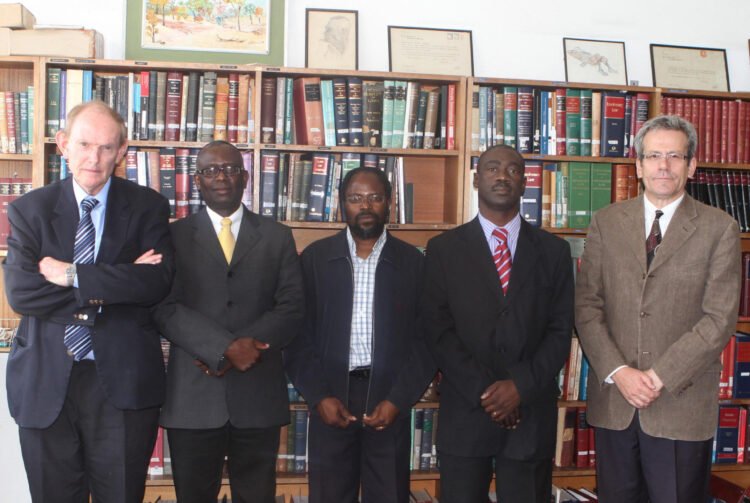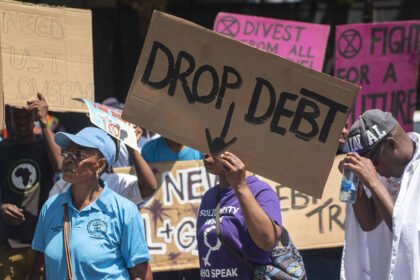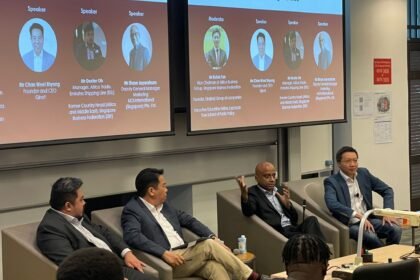I received with great sadness the news that Nicholas Mark Kotch, one of the most distinguished and principled journalists to work in Africa, had passed away on May 2, 2025.
He died in London following surgery after a prolonged illness. He was 72.
Nick Kotch was not only a consummate professional; he was a friend, a mentor, and a generous colleague to many of us who worked with him in Africa.
His journalism career began in 1977 with Reuters, and over the course of nearly three decades, he reported from 47 African countries, always with insight, context, and unwavering integrity.
He served in key roles as West Africa Bureau Chief in Abidjan, East Africa Bureau Chief in Nairobi, and later, as Africa Bureau Chief based in Johannesburg.
Wherever he went, Nick led with quiet authority and deep respect for the stories and people that defined the continent.
Together, we secured rare interviews with some key African leaders.
I recall vividly the interviews with Kenya’s Second President, Daniel arap Moi and Zambia’s Frederick Chiluba at a critical moment in Africa’s political evolution.
The Moi interview was in the context of transition to multi-party rule, while the Chiluba one was secured on the eve of the last Organisation of African Unity (OAU) summit in Lusaka- before it turned to being called the African Union (AU).
The interview with the Zambian leader was also conducted following the assassination of a Chiluba political rival. Nick also sat down with Nelson Mandela-a testament to his credibility and the trust he inspired.
In Abidjan, he met and married Professor Véronique Tadjo Kotch, herself a towering intellectual figure, poet and artist, with whom he raised two sons, Matteo and Larry.
Their partnership was a union of art, intellect, and activism-rooted deeply in Africa’s cultural and political narrative.
Nick’s greatest legacy, however, may lie in the people he nurtured. He mentored some of the continent’s finest journalists: Cris Chinaka in Zimbabwe, Buchizya Mseteka in South Africa, Paul Busharizi in Uganda, and many others-including myself.
His mentorship was never loud, but it was always present, encouraging, and empowering.
Ugandan journalist Julius Mucunguzi, who was my co-worker at the Commonwealth Secretariat, remembered Nick and his methods with great warmth.
“My first interaction with Nick Kotch was when he was a consultant trainer for the Commonwealth Secretariat on human reporting for journalists in The Gambia in 2010. This was a sensitive subject in the country at the time, but Nick was able to pull it off seamlessly, using the many contacts he had with the authorities and journalists in Banjul,” Mucunguzi said.
“Nick had a unique way of making complex subjects easily understandable…. He gave us practical tips of doing bold journalism and surviving in hostile political environments, while sharing his wealth of personal experiences from covering the African continent.”
From Harare, Cris Chinaka recalls how Nick lent the Harare editorial team solid support in reporting Zimbabwe’s long running political crisis under President Robert Mugabe, an emotional story in a generally hostile working environment for journalists.
“We could count on Nick to help us through the hurdles to deliver professional journalism,” he said.
In Nairobi, broadcast journalist Jeff Koinange remembered the passion and commitment Nick gave coverage of the Africa story.
“He was a GOOD Man and a Great Boss and he loved telling the African story,” Jeff recalled.
“I did several tours with him across Africa and he treated every story like it was his first time…. What a man!!!”
Beyond covering stories competitively, Chinaka said Nick also encouraged senior African journalists in Reuters to help train and mentor others.
“He believed in building skills and capacity as a critical contribution to reporting the African story,” he added.
Nick was there during some of Africa’s most defining chapters-from the fall of Mobutu in Zaire, now the Democratic Republic of Congo (DRC), to the early post-apartheid years in South Africa.
His reporting was fearless, and often came at personal cost. I recall the time he was expelled from Kinshasa via the Congo River.
Years later, when I was declared Persona Non Grata in the Congo for supposedly failing to prove President Laurent Kabila had invited me to his own funeral, Nick simply chuckled and welcomed me to an infamous club.
Even after retiring from Reuters in 2004, Nick never left journalism. He lent his voice to France 24, BBC Radio, and Business Day as its first Africa Editor. Most significantly, he dedicated his later years to training journalists, defending Press freedom, and challenging outdated global narratives about Africa.
He was a journalist’s journalist. Rigorous. Generous. Always fair. He gave African stories dignity, and African journalists courage.
Rest well, Nick. Your pen is laid down, but your story lives on.




